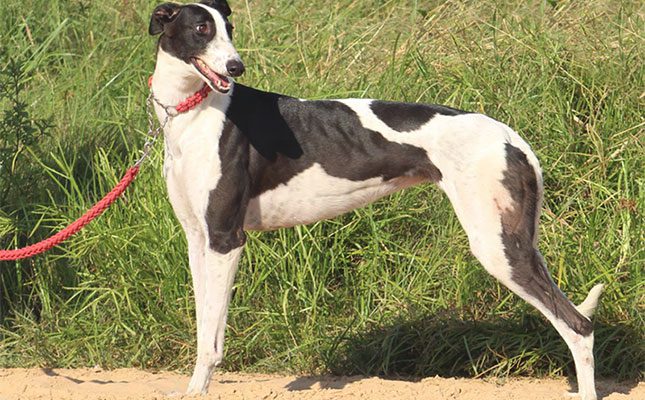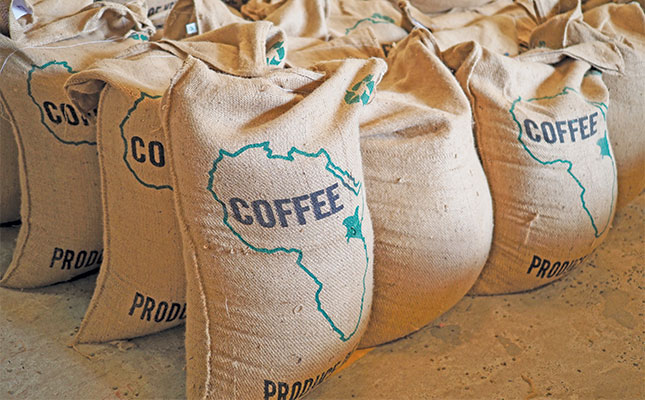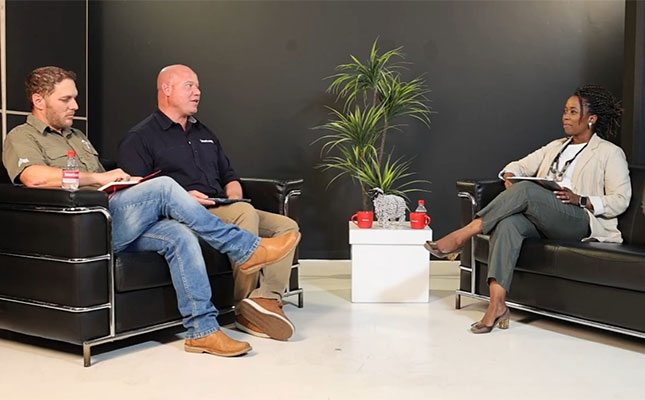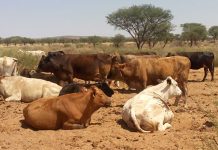
Van Vuuren said the dogs come from “the most famous bloodlines in America, Australia, and Ireland,” citing De Machine, owned by Van Vuuren and Gert du Plessis of Namibian Greyhounds (also in attendance), a descendant of the renowned Droopys Cain x Precious Story. De Machine was among Ireland’s top earners, elevating the value of his offspring.
The auction focussed exclusively on speed-bred Greyhounds, not hunting dogs. Buyers from South Africa, Botswana, and Namibia were on hand to source elite breeding stock.
Following a business decision to part ways with Namibian Greyhounds, Van Vuuren repurchased the dam Precious Story for R400 000. Du Plessis bought Baily for R275 000, and Black Magic for R150 000.
Other notable purchases included Jet Fuel by Jean Nieuwoudt of Wolmaransstad for R110 000, while Dirk Serfontein of Greyhound Kennels secured imported puppies.
ELITE GENETICS
Speaking to Farmer’s Weekly, Van Vuuren said the greyhounds command high prices due to their elite genetics and international bloodlines, which is key for breeding competitive runners.
He said while dog racing is illegal in South Africa and he does not breed for racing, but rather for the passion of breeding, the dogs are often purchased at auctions for export and racing abroad in countries like Ireland and Botswana, where racing remains operational.
Van Vuuren, a passionate and experienced breeder, said the joint venture from which the dogs were auctioned focused on producing top-quality greyhounds using the best bloodlines from around the world.
They had imported animals from Ireland, America, and Australia, investing significantly in the health and genetics of his dogs.
CATER TO EXTERNAL MARKETS
He explained that his breeding operation was not aimed at racing, but rather at producing well-cared-for, high-value animals with exceptional speed.
“These dogs are not bred for hunting, they’re bred for speed,” he explained. Many are exported to countries like Botswana, and great care is taken when selecting responsible buyers, he added.
Van Vuuren emphasised the difficulty of the business and the importance of prioritising the dogs’ welfare over profit.
“We breed for passion,” he said, noting that this results in dogs that are better looked after and more valuable in the long-term.
Greyhound (dog) racing has been banned in South Africa since 1949, and there are no current legislative moves to legalise it.
The National Society for the Prevention of Cruelty to Animals (NSPCA) opposes any form of animal racing, citing welfare concerns such as confinement, drug use, injuries, and the killing or abandonment of unfit or retired dogs.
The NSPCA’s Special Projects Unit highlighted inhuman practices such as live-bait training, the administration of performance-enhancing drugs, and the disposal of excess puppies.
Senior Inspector Jaco Pieterse of the NSPCA said: “People must accept the fact that running and racing are two different things. [Racers] are confined for most of their lives in small cages.”
Despite the domestic ban, Southern African breeders operate from a perspective of export and international competition.
Botswana and other neighbouring countries host legal dog races, and there is a demand abroad, especially in Ireland, for fast, well-bred greyhounds.
Consequently, some South African breeders maintain breeding programmes that cater to external markets.
Get trusted farming news from Farmers Weekly in Google Top Stories.
➕ Add Farmers Weekly to Google ✔ Takes 10 seconds · ✔ Remove anytime






